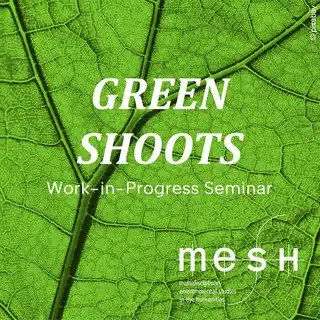MESH Green Shoots
Work-in-Progress Seminar: A Kincentric Lifeworld | Entangled Landscape and Identity in Cherangany Hills, Kenya
King’asia Mamati
April 9, 2024 | 12.00 – 13.00 | GSSC, 3.03
(Classen-Kappelmann-Str. 24, 3rd floor, 50931 Cologne)
This paper sheds light on the intersection between landscape and human-environment relations in the Kenyan context, with a particular focus on the Sengwer ethnic community. The paper explores narratives of landscape within the broader spectrum of environmental discourses and identity claims. It shows that in Sengwer territories, their cosmology is deeply intertwined with their lifeworld, which recognises a multiplicity of sentient beings, only some of which are perceptible. In addition, the Sengwer extend personhood and relatedness to a wide variety of other entities, including deities, spirits, plants, animals, birds, and celestial phenomena. Totems, myths and taboos are prominent features of Sengwer worldview that determines human and nonhuman interaction in the environment. The central figure bridging the seen and unseen worlds is the thunder deity Iiilat, who shapes the moral code for the community. The Sengwer landscape serves as a repository for local deities, religious cosmologies and ancestral spirits, with specific sites designated as dwelling places for Iiilat and for ritual purposes. The Sengwer landscape not only provides them with food, medicine, water, honey, and shelter, but also embodies their identity, history, memory, cultural and religious significance. The Sengwer contest marginalization, Identity, exclusion, and environmental degradation by instrumentalizing their kincentric worldview.
Keywords: Sengwer worldview, Iiilat, Assis, human-environment relations, Identity
King’asia Mamati is a Doctoral researcher in Social and Cultural anthropology at the University of Cologne. His research interests include human-environment relationships, indigenous peoples, local knowledge systems, environmental change and religion.


